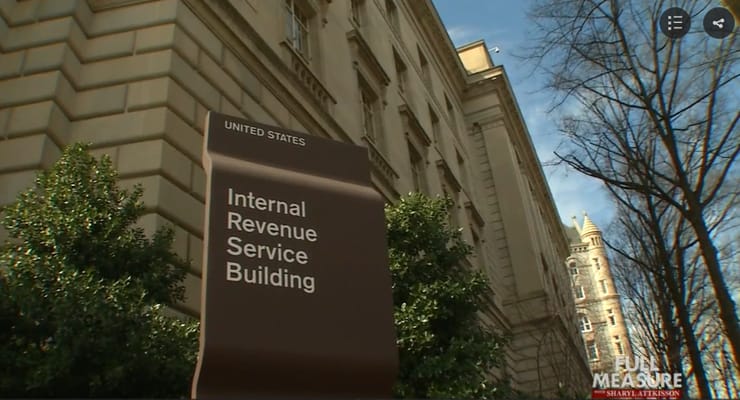Due to a significant backlash from the public and U.S. lawmakers, the Internal Revenue Service (IRS) will no longer require taxpayers to send a “video selfie” to verify their identity, in order to access online services.
The IRS was set to implement the plan this summer.
It would have required taxpayers creating new online IRS accounts and/or obtaining tax transcripts online to verify their identity with a “video selfie,” which would then be sent to a third party vendor, ID.me, to carry out the verification process.
The IRS system raised significant data privacy and security concerns among privacy advocates and citizens, considering the sensitivity of both the facial recognition and the taxpayer information it was designed to secure.
Lawmakers from both parties objected to the plan. That includes Sen. Ron Wyden (D-Oregon), chairman of the Senate Finance Committee who tweeted on Jan. 20 that he was “very disturbed that Americans may have to submit to a facial recognition system.”
Wyden called on the IRS to stop the practice saying, “The IRS does not use facial recognition for tax filing or to receive a refund, and the agency should not require facial recognition for any of the other important services it provides taxpayers. I have long argued that Americans should not have to sacrifice their privacy for security,” he said.
Sen. Roger Wicker (R-Mississippi), the head Republican on the Senate Committee on Commerce, Science, and Transportation, is another lawmaker who recently wrote IRS commissioner Chuck Rettig, questioning the new policy.
It was Sen. Bill Huizenga (R-Michigan) who authored a bill in early February to ban the IRS from using facial recognition software on taxpayers.
“It shouldn’t be legal,” Huizenga told Fox Business in an interview announcing the bill.
“Every page we turned on it, it was like red flag going up after red flag,” Huizenga said of the facial ID plans.
“I just don’t trust them with this information in that one, I don’t think they’re going to be able to keep it secure and two, I don’t trust them with what they will then do with the information.”
IRS Commissioner Chuck Rettig responded in a statement saying:
“Everyone should feel comfortable with how their personal information is secured, and we are quickly pursuing short-term options that do not involve facial recognition.”
The IRS said this change in plans will not interfere with a taxpayer’s ability to file their return or pay taxes owed.

The Lemonade Mermaid Store
Unique gifts for Land or Sea Mermaids, Mer-pets and Little Mermaids!
Left: Our signature Fish Scales design tote bag in Citrus




Even if there intent was pure, the database would eventually hacked and the facial biometric data would be sold to the highest bidder for a variety of nefarious purposes. I too am concerned
indeed.
so many people do not have a device (iPhone, smart phone) needed for making videos, photographs or selfies. these same people cannot obtain a QRcode either. it’s a scam of global proportions.
HONK HONK!!
Indeed. My mom is 83 and has dementia and can’t use a regular phone let alone a smart phone.
I know a lot of people who still use phones from the 2010s now what should they buy in order to send a photo of a new one? and then explain this to older people, irs is going a little off track
The IRS lies. In this article they claim “The IRS said this change in plans will not interfere with a taxpayer’s ability to file their return or pay taxes owed.” But I cannot file my taxes because they refuse to let me login without recording video of me. The video chat is recorded. They claim they aren’t collecting biometric data, but then state you have to do a video chat. How is a video of my face NOT biometric data? They claim they will delete the video chat session after 30 minutes, but not the data they capture from the video. Of course they can still process the video and capture your biometric data during the call. Hence the need to keep it for 30 minutes. Why do they need a video AT ALL if they aren’t collecting biometric data?
I never asked for the payments they sent, and I was never given an option to refuse them. The payments just appeared in my checking account. I didn’t want them. I bet this is why they sent them out. Now I cannot file my taxes without those letters (6419 and 6475) that they failed to send me.